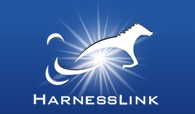For those of us who’ve been around the sport of harness racing for more years than we’d care to remember, it’s not easy to put yourself in the shoes of a young person aspiring to get their start.
Limited knowledge, a lack of contacts or family involvement, and a complex and demanding industry are just some of the deterrents for someone starting out – or looking for a way in.
But kudos to Harness Racing Victoria (HRV) for a new program called “Drive for Life” that will partner junior drivers with industry “coaches” – mentors aimed at supporting young people to develop sustainable careers in the sport.
But what’s the view from the inside, from young people who are now forging successful careers in the sport?
DENBEIGH WADE
The Victorian reinswoman now has an established harness racing career at Charlton with her trainer partner Michael Gadsden. But when she was starting out as a teenager in Mildura she had “just some pony club experience and a love of horses” to drive her ambitions.

“(Mildura trainer) Frank Cavallaro is where it all began for me and for his help, insight, support and encouragement – I could not thank him enough,” Denbeigh said.
“Not just for the good feedback after drives but also the advice about what else I could have done. Never did he say I’d done the wrong thing – just what to take into account for next time. Still today I’ll ask his opinion on a field I’m in, or a horse I’m driving,” she said.
“Also, Kezzie (champion Great Western driver Kerryn Manning) was the most amazing role model. Working under her guidance was brilliant, but also the opportunities I had from being associated with her. Again, today I can still pick her brain over anything and she’s always happy to help.
“And the same with her husband (trainer-driver) Grant Campbell – he was a massive help with tactics before races or when I’d have to go to a stewards’ room, he always guided me. Even in times when he’s not been at the track I’ve called and ask for his opinion with what’s happened.”
Denbeigh said her partner Michael continued to be her “biggest rock”, but acknowledged the early support from mentors was crucial.
“It can be intimidating for someone starting out, but I always felt comfortable and relaxed in being able to ask all of those people for guidance,” she said.
“They’re the guys I know to this day I could go to for anything with no judgement and they would be there just to help.”
TINA RIDIS

Conversely, Maryborough trainer-driver Tina Ridis and her dad, by her own admission, had to find their own way – and it was tough.
“Dad was self-taught and we lived on a spud farm out in the middle of nowhere – we didn’t have close contact with too many other trainers,” she said.
“We just had to live and learn. No Sky channel or anything! Just watching races when we were actually on course. We just had to learn from our mistakes, and we definitely didn’t have anyone to hold our hand in the stewards’ room!”
TASMYN POTTER

Junior reinswoman Tasmyn Potter is finding her feet in the sport professionally, but acknowledges advice close at hand from her dad, trainer Wayne, is invaluable.
“Dad was a massive mentor, taking me under his wing and showing me the ways of training. He gave me the confidence to go out on my own and have a crack at training myself; he was also a driver and has been guiding me through my trials and the start of my professional driving career,” she said.
BEC BARTLEY
Although trainer-driver Bec Bartley was born into a harness racing family, she said early support was critical, particularly from her employer, Steve O’Donoghue, with whom she now has a training partnership.
“After each race drive we would sit down in the office and watch the replay. Steve focussed on what I did wrong, what I could have done better – he really worked on my whip action and even how to sit in the bike,” she said.”
“Steve’s father-in-law Eric also drilled into me to ‘never leave a beaten horse’, meaning never go for home too early. He’s won me a few races with that advice!”
HRV Chairman Dale Monteith said industry coaches would give support by providing tailored skills training and coaching in race driving and analysis, form, as well as supporting on and off the track through regular contact at races, trials and stables, and face-to-face training sessions.
“Junior drivers particularly feel the pressure this environment produces, as they attempt to establish themselves in a sport they are passionate about.”
HRV will be calling for expressions of interest to become a paid Drive for Life coach in the coming weeks.

 USA
USA Canada
Canada Australia
Australia New Zealand
New Zealand Europe
Europe UK / IRE
UK / IRE

